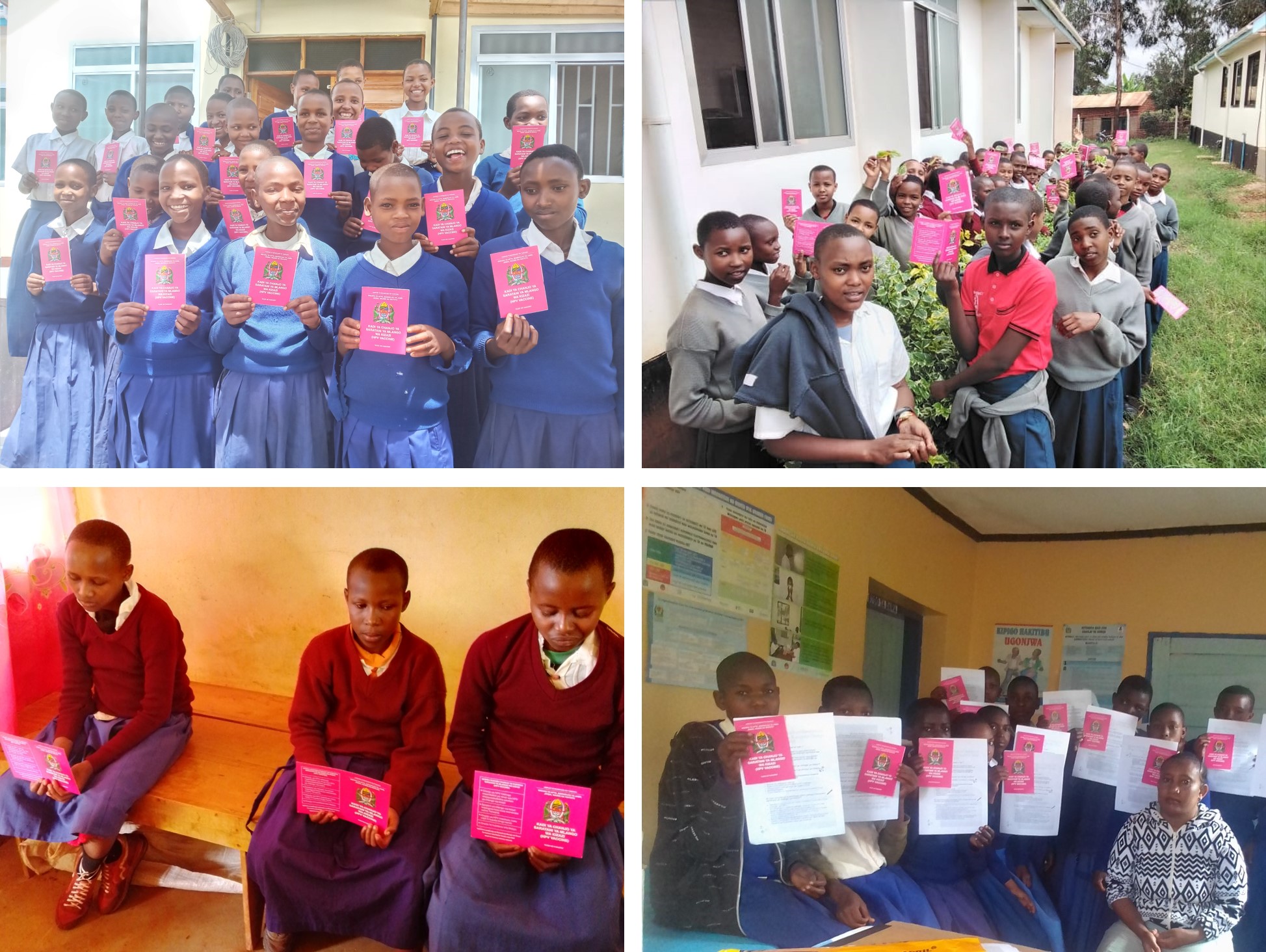Categories:
- Health
Status:
Completed On:
Start Date:
Cost:
Assure that all 14 year old girls receive HPV vaccinations
In 2017 the UN reported that cervical cancer kills more than 250,000 women every year and 85 percent of these deaths occur in low- and middle income countries. According to the World Health Organization 2020 Report, Costing the National Response to Cervical Cancer: United Republic of Tanzania, 2020–2024, Tanzania had the fourth highest incidence rate of cervical cancer in the world with 59.1 new cases per 100,000 women. Cervical cancer mortality is also high, with 42.7 deaths per 100,000 in 2018.
The Tanzanian Ministry of Health responded by implementing a national HPV vaccination plan for girls 9-14 years of age. This is driven primarily through the schools.
In Ayalagaya and Arri wards the schools are supposed to send a girl to the clinic for the 1st vaccination the month she turns 14, then 6 months later for the 2nd vaccination. The dispensaries are also charged with tracking which girls are vaccinated and with following up when girls miss a dose. This is a completely manual process.
In 2021, Karimu reviewed how the schools and dispensaries were tracking HPV vaccinations and discovered that not all schools followed the process. Girls may not be sent in a timely manner for the 1st dose. If a girl gets the 1st dose while in primary school, but does not qualify for or attend secondary school, she may miss her 2nd dose. The dispensaries are not following up with parents when vaccinations are overdue. And parents are also not well aware of the importance of the vaccine so are not making sure their girls get vaccinated.
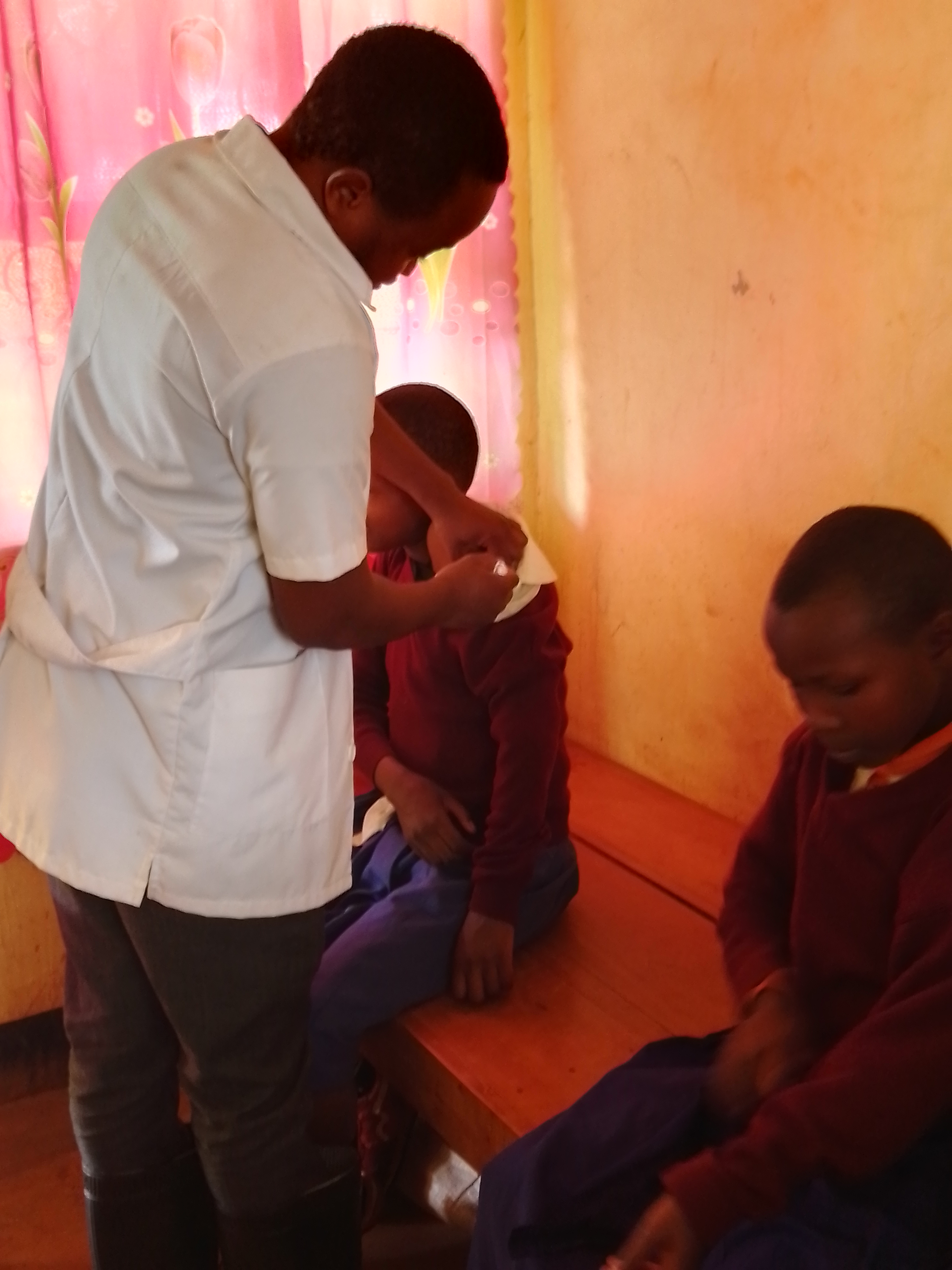
Karimu is implementing an HPV intervention to improve and track the process, make sure that schools and dispensaries are working closely together, and elevate the importance of the vaccination in parents’ and students’ minds. In addition, the government simplified the guidelines for vaccination so that all girls of the appropriate age be sent for vaccination together annually, rather than monthly. Now, every year, the primary and secondary schools will create a list of all the girls who will need their HPV vaccination including parent contact information for the girl. The school then gives that list to the local dispensary. All the girls eligible for vaccination go together to the local dispensary for their 1st and 2nd vaccinations. The dispensaries track the vaccinations, identify any girls who did not get their vaccination as expected, and reach out to the schools or parents to complete the vaccination regimen. Karimu is correlating these lists until we verify that the process is working smoothly and effectively.
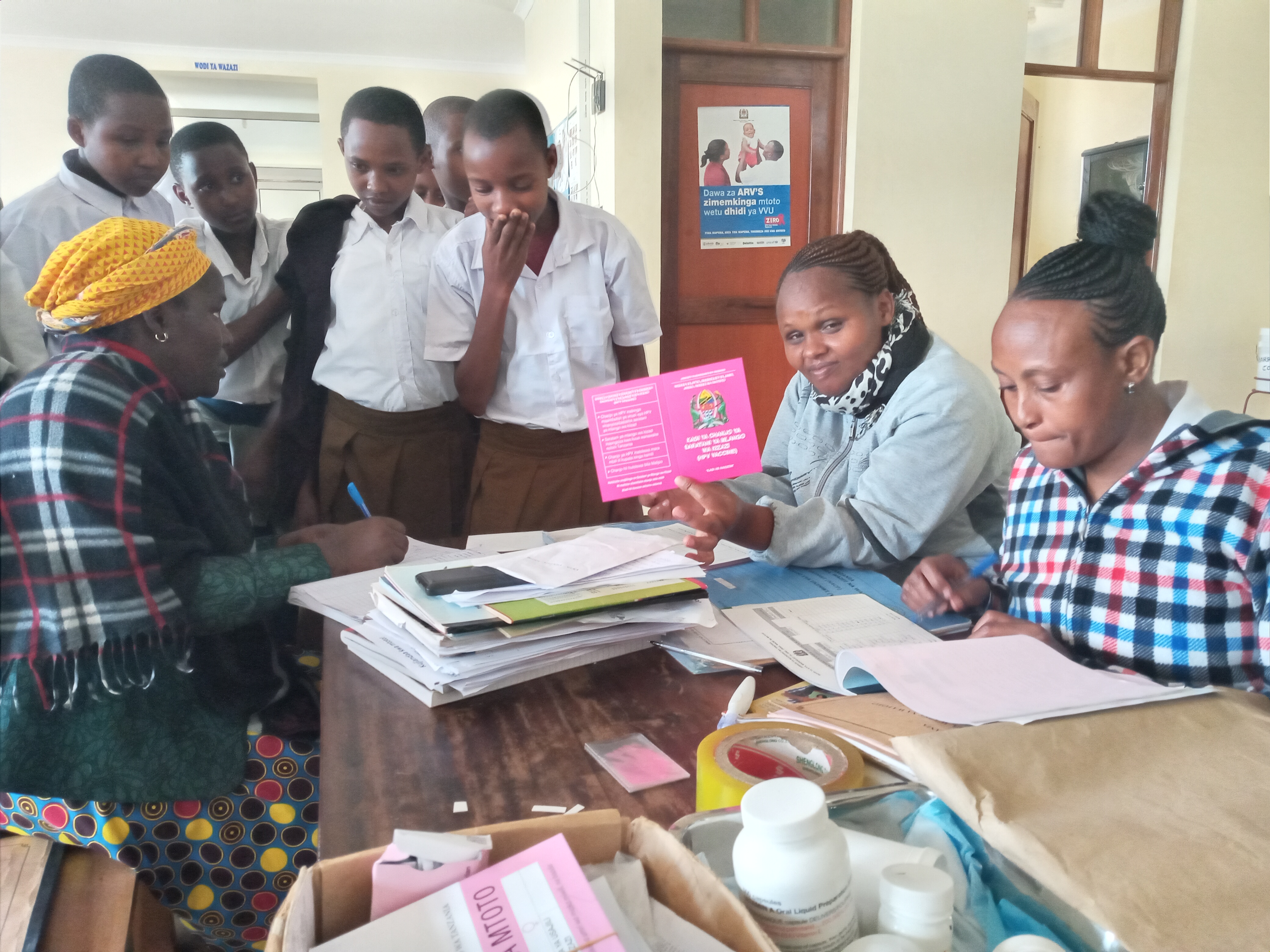
Karimu is increasing awareness of the HPV vaccine and its importance by:
- Giving all 14 year old girls fliers to read and take home to their parents
- Including the importance of HPV vaccination in the girls hygiene curriculum
- Integrating content on cervical cancer and HPV vaccination in the TV content to be shown in the dispensary waiting rooms (those with electricity and a TV).
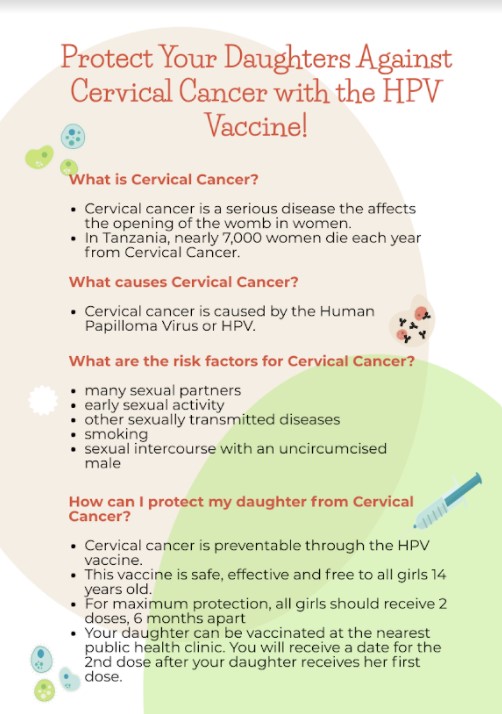
This intervention will terminate when we see the process working well between all schools and clinics in the area.
July 2022 Update: All but 2 girls have received their 1st HPV vaccination for 2022 and the clinic is following up with the 2 girls.
Dec 2022 Update: We are finding that the communication between the schools and dispensaries is going well. Of all 14 year old girls 513 received their 2nd dose, 4 had moved away, 4 will receive it in December, and 6 are no longer in school and have not been located, but they are continuing to try to find them. The main challenge has been the availability of sufficient vaccines. The clinics need to work with the government early in the school year to address the vaccine supply.
April 2023 Update: 402 girls received their first HPV dose, only 5 were missing. Of those 1 moved away and 4 are no longer in school. The teachers have been contacted about the girls who have not received the doses and were asked to follow up. We are also following up with why the girls are not in school as the government requires that students attend primary school.
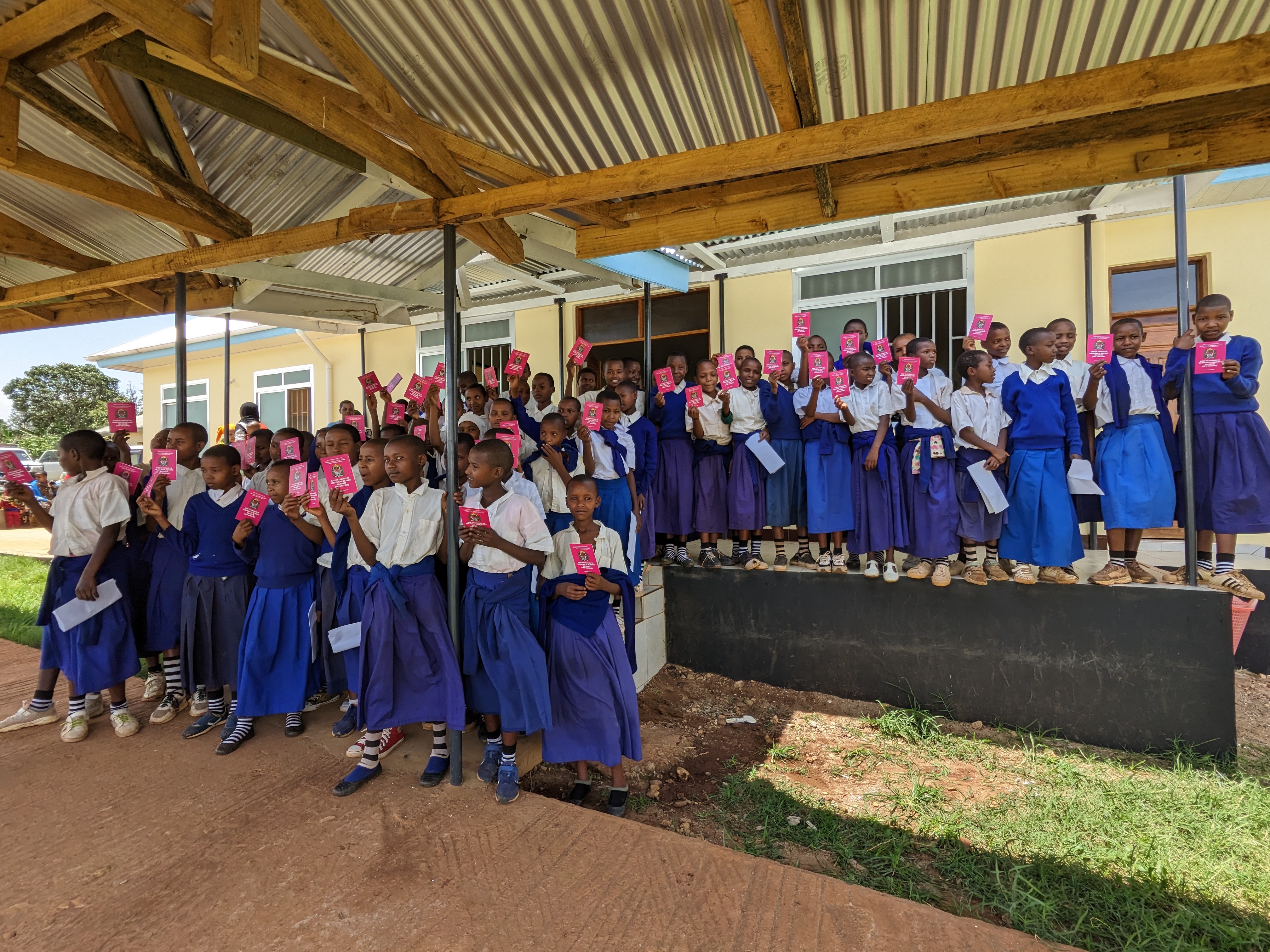
October 2023 Update: The girls who missed their 1st dose were contacted and received it so 100% of girls received the 1st dose. For the 2nd dose 396 girls received it, 2 have moved away, and 3 more are being contacted to receive it. We are observing that the clinics and schools are working very well together without our intervention to make sure that the girls are receiving their vaccinations.
March 2024 Update: Based on recommendations from the World Health Organization, Tanzania is moving from a two dose to a single dose regimen this year for HPV vaccinations. While some girls received the first dose, all vaccinations have stopped pending further guidance from the Tanzanian Ministry of Health.
April 2024 update: The new guidelines will give a single dose to girls between the ages of 9 and 14. This year the nurses will travel to the schools (primary and secondary) and give the doses for all girls in this age range. For girls who are not in attendance on HPV vaccination day for their school, the school will track who was missed and make arrangements to send them to the clinic during school hours for vaccination assuring that all girls are vaccinated. Those having already received the 1st dose of the two dose regimen will receive their second dose. This year the vaccination days for our wards were April 22-26 . 1244 girls were vaccinated with the single dose vaccine and 34 were given their second dose of the 2 dose vaccine. For future years, the plan is to vaccinate all girls at age nine before leaving primary school.
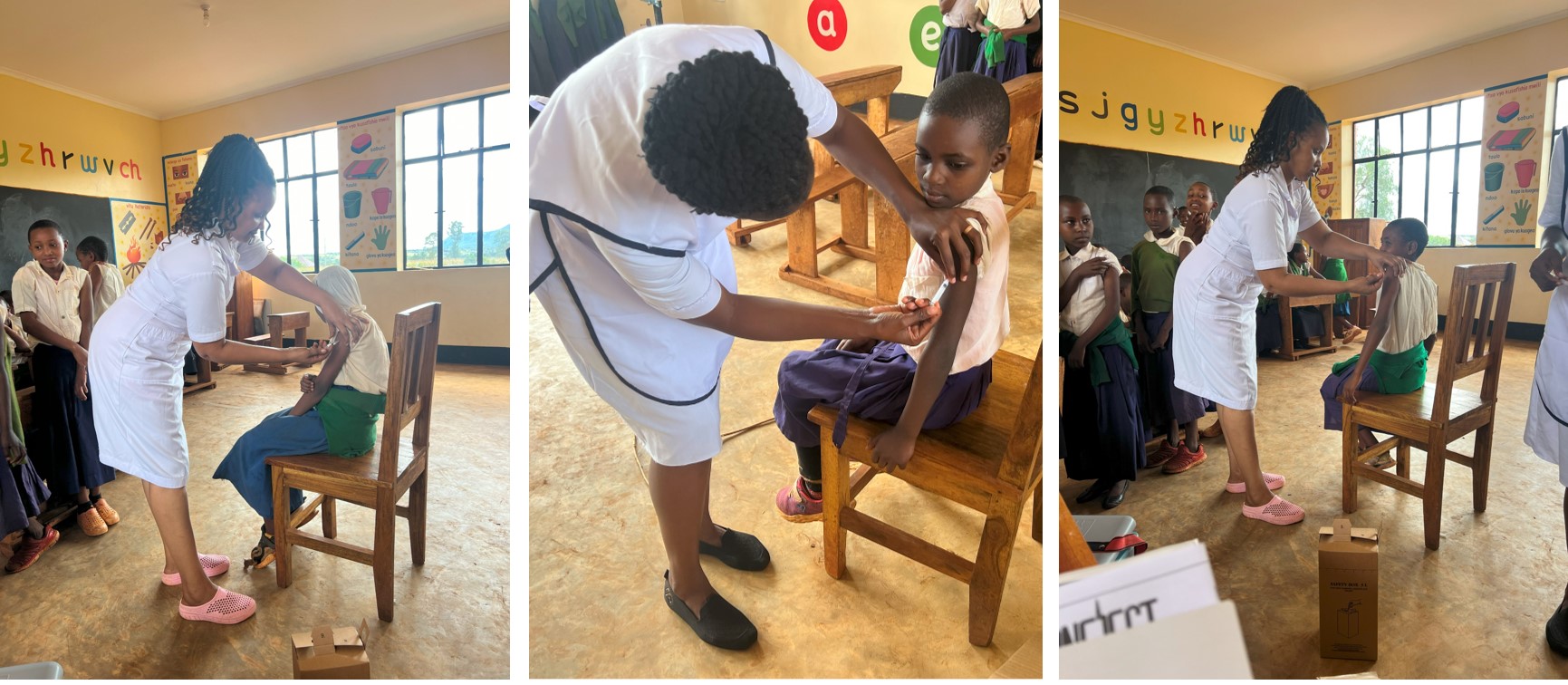
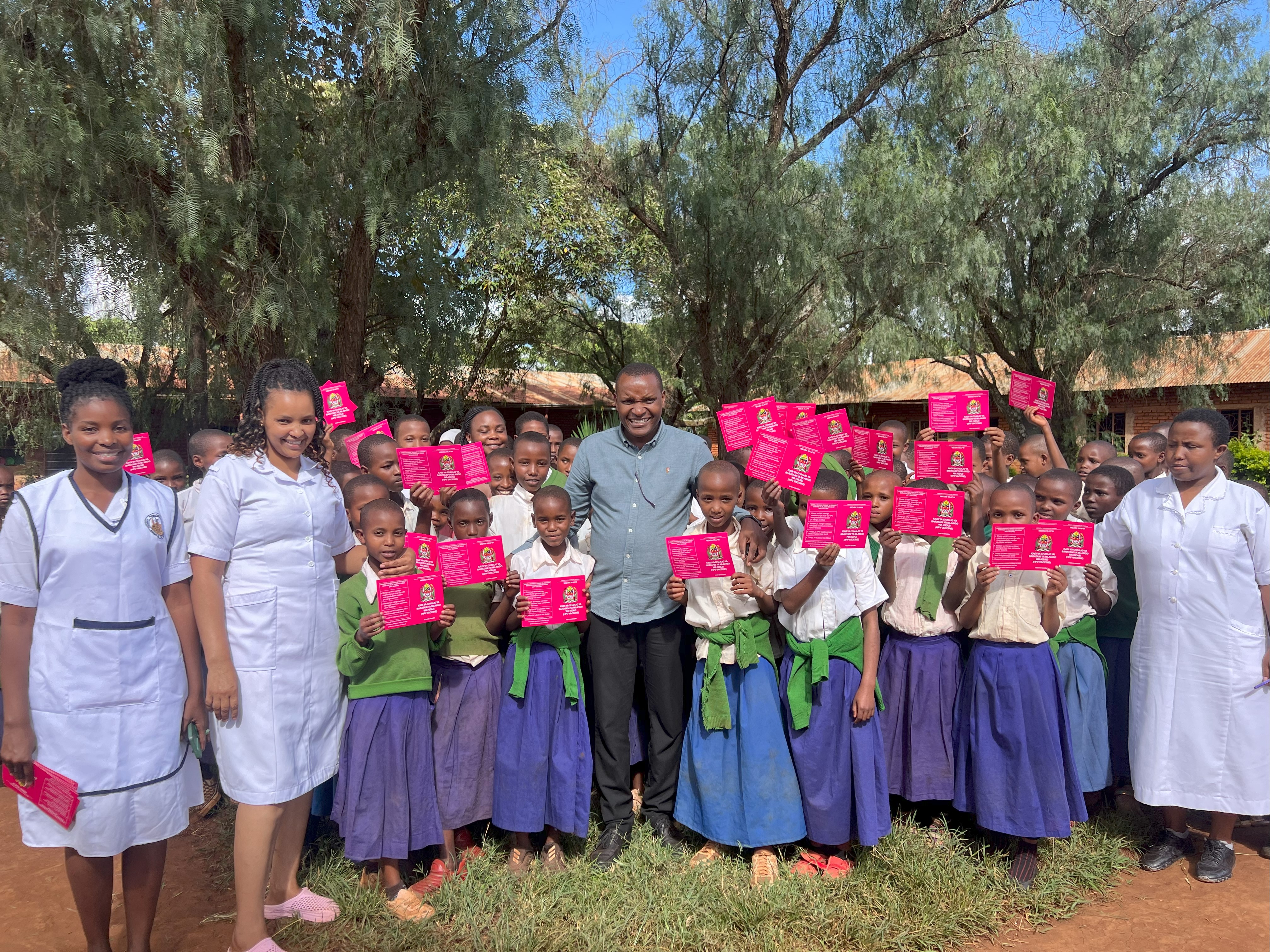
Update June 2024: By the end of the school year of the 1912 girls registered, 1878 had received their vaccinations and the remaining 34 will be vaccinated when school resumes.
Update Dec 2024: By the end of the year all students were registered in the school books and dispensary books. 100% of girls 9-14 were registered and vaccinated totalling 2,133 students. We anticipate that 2025 will be the last year that Karimu needs to track HPV vaccinations as the schools and dispensaries are working well together.
Update July 2025: At the beginning of 2025 the registration of students at school was cross-checked against the dispensary books. The entries were well coordinated and matched across schools and dispensaries. In total there were 375 girls registered in these books that should get the HPV vaccination. They were all vaccinated in the first half of the year at the dispensaries in Arri and Ayalagaya.
Update Dec 2025: Given the strong coordination between the schools and the dispensaries now, this project will be closed for Ayalagaya and Arri wards.
Benefits:
- Increase HPV vaccination rate for girls
- Reduce cervical cancer
Costs: $3,597



